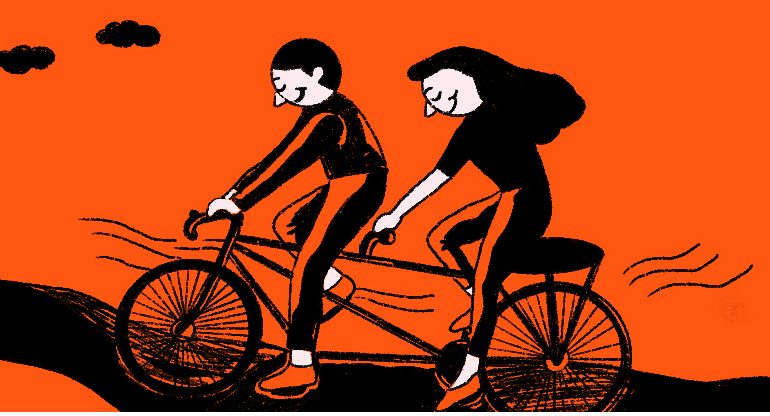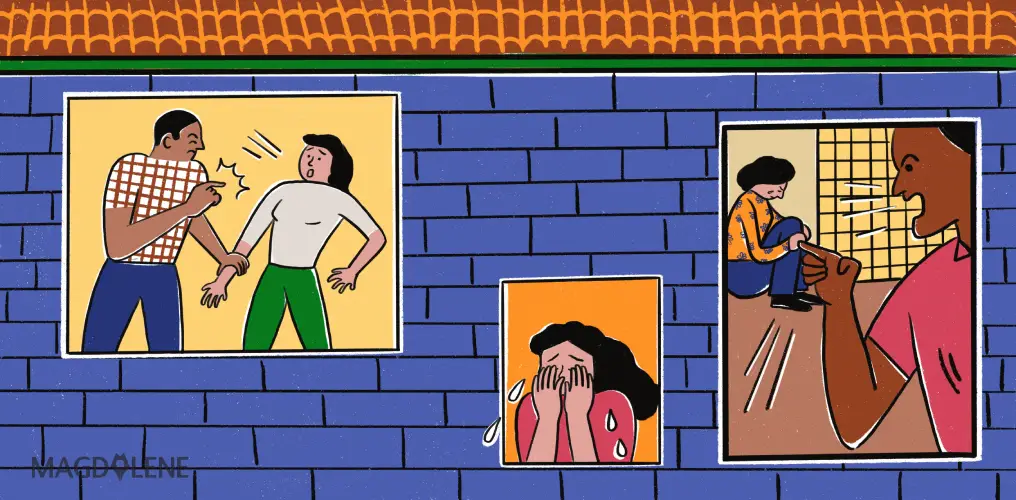Sharing Domestic Roles: More Said than Done
Despite increasing efforts to push men to share domestic work equally, women are still saddled with most of the household work.

Days turned to weeks, and weeks turned to months – three months, is how long we have been staying at home to help flatten the curve of the COVID-19 pandemic. Though the government has eased off its social distancing restriction, most of us may still be working from home for the next few weeks, if not more.
On a recent virtual meeting, I asked some female friends about the distribution of domestic roles in their households. I wasn’t surprised when most of them said they had been more tired than usual in the pandemics. Asides from having to work from home and having virtual meetings, they have to cook for their families and supervise their kids’ “school from home” activities, all while keeping their houses clean.
This does not only apply to my married female friends. In fact, for those who still live with their parents, the responsibilities of managing households and doing domestic chores are usually placed on them.
“No matter how high a woman’s education is, her place is ultimately in kasur, dapur and sumur” – bed, kitchen and well – goes the old saying that, unfortunately, is still deeply entrenched in our society.
In recent years, there has been a growing awareness of the need to increase men’s roles in the household work, with campaigns like “men’s care” or “new men,” but challenges remain in normalizing this.
In her paper “Some Theories on Why Men Don’t Do as Many Household work,” Alexandra Bradner, a philosophy professor from the University of Kentucky in the U.S., said the distribution of work in the household and a culture of appreciation influence the differences in the way roles are evaluated in a household. However, she said, only a few researches aim to understand why men and women differ in their perception of household chores.
Also read: Marriage Lessons from Being Quarantined with My Parents
There are at least three hypotheses to help us understand this:
First is the epistemic hypothesis, which is based on the different parenting patterns that men and women receive in their childhood. Growing up, boys witness how all the domestic works are done by their mothers, while their fathers never share on the burden. Childhood understanding and experience shape the perception and behavioral patterns of both men and women. Man don’t feel the need to do household chores because women (either by initiative or by force) will handle it. Women will also feel guilty for not being involved in household work, as men are considered less capable than they are in doing them.
Second is the motivational hypothesis, which argues that while men can have the initiative or be pushed to do household chores, they see it as less important than other activities. A father could help with his kid’s homework, but he might see it as being too trivial compared to the work he does in the more masculine public space.
A sort of community of husbands and men with gender perspective is also important, not just to remind each other, but to enable them to walk the talk.
Another example of this is that men are often reluctant to do household chores because they don’t want to be criticized by the women in the house, whether their spouse, mom, or sister – though I prefer to call this an excuse. Men can’t take criticisms and complaints from those who in fact are not satisfied with the result of their work. Some examples of their supposed “incompetence” are that they take a long time to wash the dishes, leave dirt behind when sweeping the floor, or don’t separate the white and colored clothes when doing the laundry.
Third is the structural hypothesis. Men actually want to take on roles and do household chores – they’re neither ashamed nor hesitant to do it. But work-related challenges prevent them from doing so. Male employees are often the ones who have to work long hours at night and even on the weekends. They are sent on out-of-town duties more often than women. In fact, hardly any company gives long enough paternity leave for fathers to accompany their wives and share tasks in caring for the baby.
Also read: My Patriarchal Extended Family and Why I Dread Spending Holidays with Them
From discussion to realization
So what should be done? This question is best aimed at men to understand the complexity of domestic roles that create a burden for women in the family. Building an equal relationship and open communication is the first step. Conversations should no longer be centered on “What has each person been contributing to the relationship?” It should be shifted to “What have I done to lessen the burdens of domestic workload of my spouse/partner?”.
In a patriarchal system, public roles and works tend to be considered as being more important and noble than domestic roles and works. When mothers also work in public spaces, their tasks multiply. Do their husbands realize this condition or reality? If so, have the husbands done anything to lighten their wives’ domestic workload?
A sort of community of husbands and men with gender perspective is also important, not just to remind each other, but to enable them to walk the talk. From understanding to reality. The space can also be used for the men to exchange understandings and share experiences.
And, lastly, expressing appreciation and doing routine activities together that build a fair system of household work distribution is important. Husbands and wives can take turn to accompany the child in finishing their homework, ordering in for meal every once in a while allow women to take a break from cooking, cleaning the house should be done by both husband and wives – these are some of the things that can be done to improve the situation.
Changing mindset takes time, but it is not impossible. We still have a lot of work to do to create a fair and equal world, so let’s fight for it together.
Translated by Tabina Amarilla from the original version in Indonesian, this article is supported by Splice Lights On Fund grant from Splice Media.
If you or someone you know need help to get out of domestic or online violence, contact Komnas Perempuan at 021-3903963 or [email protected]); or Lembaga Bantuan Hukum Asosiasi Perempuan Indonesia untuk Keadilan/LBH APIK at 021-87797289, WA: 0813-8882-2669, and [email protected]. Click the complete list of all service institutions/organizations here.












